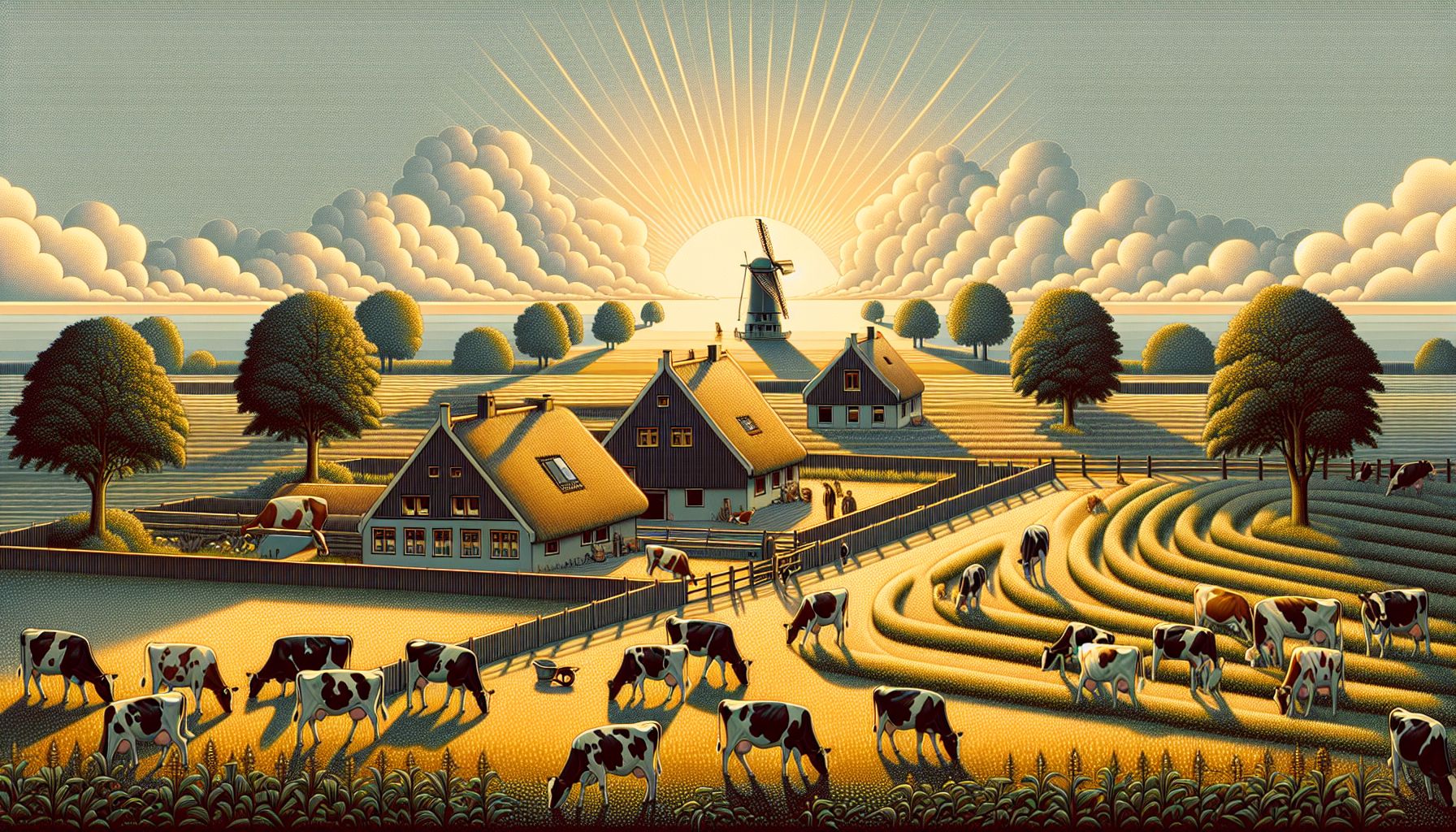Dutch Dairy Farming Tests Dynamic Wireless Grazing with GPS

A new project in the Netherlands is testing GPS technology for dynamic wireless grazing in dairy farming to enhance sustainability and address climate and biodiversity issues.
Innovation in Dairy Farming
The innovation project ‘Dynamisch Draadloos Weiden’ (Dynamic Wireless Grazing) is a pioneering effort aimed at revolutionizing dairy farming practices. By leveraging GPS technology, this project seeks to optimize the grazing patterns of dairy cows, thereby addressing critical issues such as nitrogen emissions, climate change, and biodiversity loss[1].
How Dynamic Wireless Grazing Works
The core of this technology involves equipping cows with GPS collars that communicate with a central system via a smartphone application. This allows farmers to precisely control grazing areas without the need for traditional fencing. The GPS collars guide the cows to specific locations, ensuring they graze in optimal areas that promote plant diversity, protect sensitive ecological zones like ditch edges and bird nests, and avoid wet spots that can damage soil structure[1].
Benefits of the Technology
Dynamic wireless grazing offers numerous benefits. It significantly reduces ammonia emissions and greenhouse gases, particularly in peat meadow areas, thus contributing to better air quality and climate mitigation. Additionally, it enhances animal welfare by monitoring cow behavior and physiological responses in real-time, ensuring they are healthy and stress-free. This system also extends the grazing season, allowing cows to spend more time outdoors, which is beneficial for their overall well-being[1].
Project Implementation and Goals
The project commenced in spring 2024 and will run until the end of 2026. It is being conducted at Dairy Campus, a research facility in the Netherlands, in collaboration with several research institutions and technology firms. The primary goal is to test the effectiveness of this technology in a real-world setting and to gather data on its impact on both the environment and the dairy cows themselves. The expected outcomes include increased work efficiency for farmers, enhanced monitoring capabilities, and improved well-being for the cows[1].
A Broader Perspective
This initiative is part of a broader trend towards precision livestock farming (PLF), which uses advanced technologies like sensors and real-time data monitoring to manage individual animals more effectively. PLF has been shown to improve animal health, productivity, and environmental sustainability by providing actionable insights and automated monitoring systems[2]. The ‘Dynamisch Draadloos Weiden’ project is a significant step forward in this field, showcasing how innovative technologies can address complex agricultural challenges.

